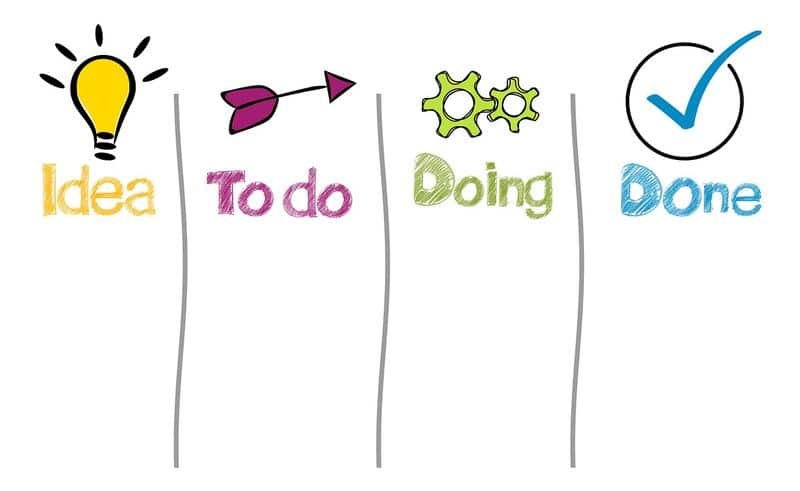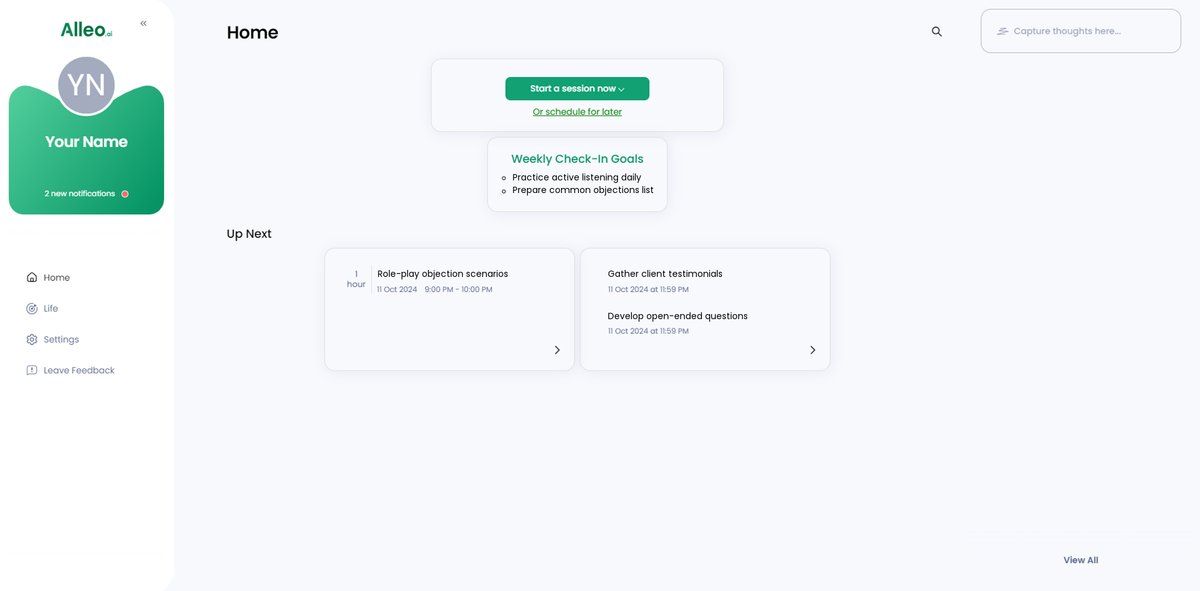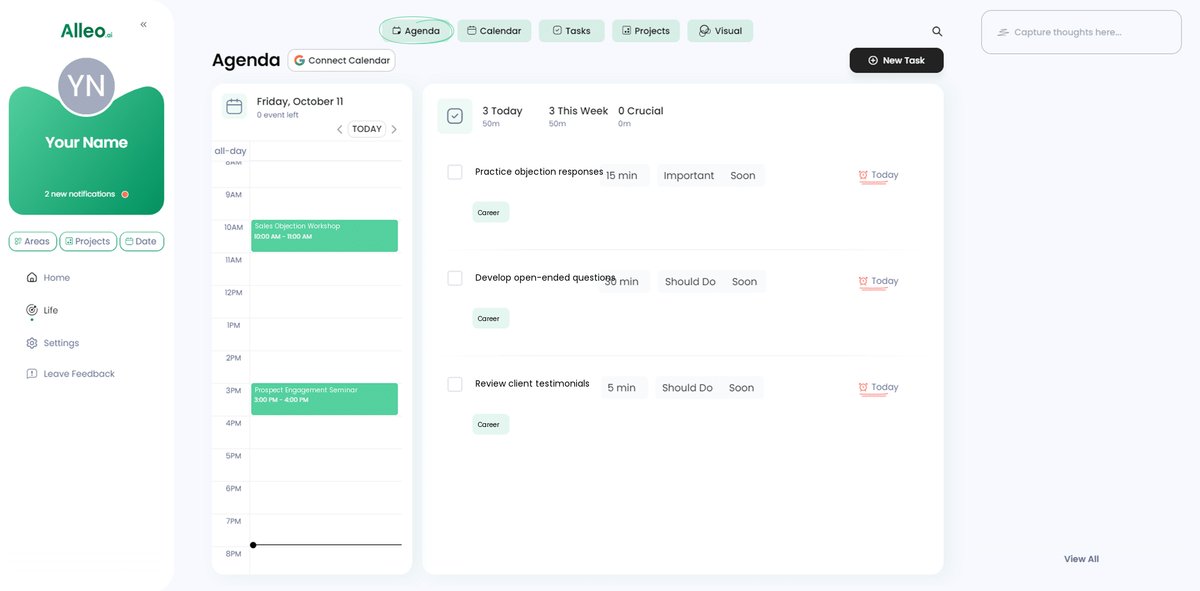How to Overcome Sales Objections: The Ultimate Guide for New Salespeople
Are you struggling to handle sales objections and keep your prospects engaged? Overcoming sales objections techniques can be challenging for many salespeople.
As a life coach, I’ve helped many sales professionals navigate these exact challenges. I understand how daunting it can be to face constant objections and the importance of building confidence in sales pitches.
In this article, you’ll discover actionable strategies to reframe objections positively and engage your prospects more effectively. We’ll cover active listening in sales conversations, reframing objections, practicing responses, using social proof, and asking open-ended questions to better understand customer pain points.
Let’s dive into these sales objection handling techniques.

Understanding the Challenges of Sales Objections
Navigating sales objections can be one of the toughest parts of the sales journey. Many new salespeople find themselves overwhelmed, feeling that objections are outright rejections. Overcoming sales objections techniques are crucial for success in this field.
This can lead to anxiety and a significant drop in confidence. Building confidence in sales pitches is essential for effectively handling these situations.
In my experience, objections are frequently misunderstood. Several clients report that they initially feel defeated when facing common sales objections and responses.
However, these are actually opportunities for deeper engagement and value addition. Effective communication skills for salespeople can help turn objections into opportunities.
For instance, when a prospect raises a concern, it indicates their interest and desire to know more. Recognizing this can transform your approach to sales objection handling techniques.
Instead of seeing objections as roadblocks, consider them as stepping stones to a meaningful conversation. Understanding customer pain points is key to this process.
Objections are a natural part of the sales process. By addressing them effectively, you can build trust and strengthen your relationships with prospects. Active listening in sales conversations is crucial for this.
Remember, it’s all about perspective and preparation. Sales role-playing exercises for new reps can help develop these skills.

Five Key Strategies for Overcoming Sales Objections
Overcoming sales objections techniques require a few key steps. Here are the main areas to focus on to make progress:
- Listen actively and empathize with concerns: Develop active listening in sales conversations to understand and acknowledge prospects’ pain points.
- Reframe objections as opportunities to add value: Turn objections into opportunities to provide more information or benefits, effectively navigating product knowledge gaps.
- Practice common sales objections and responses in advance: Prepare and rehearse responses to common sales objections through sales role-playing exercises for new reps.
- Use social proof and success stories: Leverage testimonials and case studies to build confidence in sales pitches.
- Ask open-ended questions to uncover real issues: Use open-ended questions to explore deeper concerns and needs, demonstrating effective communication skills for salespeople.
Let’s dive in!
1: Listen actively and empathize with concerns
Active listening and showing empathy are crucial for overcoming sales objections techniques.
Actionable Steps:
- Practice active listening daily: Dedicate 10 minutes each day to practice active listening in sales conversations with a colleague or friend.
- Acknowledge concerns empathetically: Use phrases like “I understand how you feel” to show empathy towards the prospect’s concerns and understand customer pain points.
- Reflect back key points: Repeat key points to the prospect to confirm your understanding and clarify their concerns, demonstrating effective communication skills for salespeople.
Explanation: These steps matter because they help build trust and rapport with your prospects. By truly listening and empathizing, you demonstrate that you value their concerns and are committed to providing solutions, which is essential in sales objection handling techniques.
According to The Digital Sales Institute, active listening and empathy are foundational skills for effective objection handling.
Key benefits of active listening include:
- Building stronger relationships with prospects
- Uncovering hidden objections and common sales objections
- Demonstrating genuine interest in client needs
Mastering these skills can significantly improve your ability to handle objections and keep the conversation moving forward, turning objections into opportunities and building confidence in sales pitches.

2: Reframe objections as opportunities to add value
Reframing objections helps transform them into valuable conversations, which is a key technique for overcoming sales objections.
Actionable Steps:
- Identify underlying concerns: Ask clarifying questions to dig deeper into the objection. This will help you understand the real issue and customer pain points.
- Reframe objections positively: Turn objections into opportunities to provide additional value. For instance, “We don’t need this now” can become “Let’s explore how this can solve future challenges,” demonstrating effective communication skills for salespeople.
- Use positive language: Replace negative words like “But” with “And” to maintain a collaborative tone, which is crucial in sales objection handling techniques.
Explanation: These steps matter because they shift the narrative from a defensive stance to a productive dialogue. By reframing objections, you can build trust and demonstrate your commitment to solving your prospects’ problems, effectively turning objections into opportunities.
According to OnePageCRM, reframing can lead to more meaningful conversations and better outcomes in overcoming sales objections.
This approach will help you engage prospects more effectively and keep the sales process moving forward, building confidence in sales pitches and improving your ability to handle common sales objections and responses.

3: Practice common objection responses in advance
Practicing common objection responses in advance is a crucial technique for overcoming sales objections. It equips you to handle objections with confidence and ease.
Actionable Steps:
- Create a list of common sales objections: Write down frequent objections like “It’s too expensive” or “I need to talk to my boss.”
- Develop and rehearse responses: Role-play objection scenarios with a mentor or colleague to refine your responses and build confidence in sales pitches.
- Record and review your responses: Use a video recording tool to capture practice sessions and improve your delivery, enhancing your effective communication skills for salespeople.
Explanation: These steps matter because they help you prepare for real-world scenarios. By practicing responses, you can handle objections smoothly and confidently, turning objections into opportunities.
This preparation aligns with industry trends emphasizing the importance of recording and analyzing sales calls to improve objection handling.
Benefits of practicing objection responses:
- Increased confidence in handling objections
- Improved ability to think on your feet during sales conversations
- More natural and persuasive communication
Having practiced responses ready can make all the difference in maintaining control of the conversation and closing deals effectively. Sales objection handling techniques like these are essential for understanding customer pain points and overcoming price objections in sales.

4: Use social proof and success stories
Using social proof and success stories is essential for building credibility and trust with prospects, making it a powerful technique for overcoming sales objections.
Actionable Steps:
- Gather client testimonials: Reach out to satisfied clients and request feedback and permission to use their success stories, which can help in overcoming common sales objections.
- Incorporate testimonials into pitches: Share relevant testimonials when addressing specific objections to demonstrate proven results, enhancing your sales objection handling techniques.
- Highlight industry-specific case studies: Use case studies from similar industries to show your product’s effectiveness and build credibility, effectively turning objections into opportunities.
Explanation: These steps matter because they provide tangible evidence of your product’s value, helping to overcome skepticism and build confidence in sales pitches.
According to ZoomInfo, social proof can be highly persuasive in addressing objections and boosting credibility, a key aspect of effective communication skills for salespeople.
By showcasing real-world success, you can build trust and confidence in your offering, which is crucial when navigating product knowledge gaps.
This approach will help engage prospects and keep the sales conversation moving forward, demonstrating the importance of understanding customer pain points in overcoming sales objections.

5: Ask open-ended questions to uncover real issues
Asking open-ended questions is crucial for understanding your prospects’ true needs and concerns, making it one of the most effective overcoming sales objections techniques.
Actionable Steps:
- Prepare insightful questions: Develop a list of open-ended questions like “What challenges are you currently facing?” to guide your conversations and improve your sales objection handling techniques.
- Encourage detailed responses: Prompt your prospects to elaborate by saying, “Can you tell me more about that?” or “What impact does that have on your business?” This helps in understanding customer pain points.
- Listen and adapt: Pay close attention to their answers and adjust your pitch accordingly to address their specific concerns, demonstrating effective communication skills for salespeople.
Explanation: These steps matter because they help you uncover the root of your prospects’ objections and tailor your responses to meet their needs, turning objections into opportunities.
According to Cognism, asking open-ended questions is essential for understanding and addressing objections effectively. This approach can lead to more meaningful conversations and better sales outcomes, helping in overcoming common sales objections.
Effective open-ended questions can help you:
- Uncover hidden pain points
- Tailor your solution to specific needs
- Build rapport through meaningful dialogue, enhancing your confidence in sales pitches
This strategy ensures that you fully understand your prospects’ issues, enabling you to provide relevant solutions and navigate product knowledge gaps effectively.

Partner with Alleo to Overcome Sales Objections
We’ve explored the challenges of handling sales objections, the benefits of overcoming them, and the steps to achieve success in sales objection handling techniques. But did you know you can work directly with Alleo to make this journey of overcoming sales objections techniques easier and faster?
Set up an account with Alleo and create a personalized plan for mastering common sales objections and responses. Our AI coach will help you tackle objections with tailored advice and support, just like a human coach, focusing on effective communication skills for salespeople and building confidence in sales pitches.
Alleo tracks your progress in understanding customer pain points and keeps you accountable via text and push notifications, helping you turn objections into opportunities.
Ready to get started for free with our overcoming sales objections techniques? Let me show you how!
Step 1: Log In or Create Your Alleo Account
To start overcoming sales objections with AI-powered coaching, Log in to your account or create a new one to access personalized strategies and support tailored to your sales challenges.

Step 2: Choose “Building better habits and routines”
Click on “Building better habits and routines” to start developing consistent practices for handling sales objections effectively, helping you transform challenges into opportunities and boost your sales performance.

Step 3: Select “Career” as Your Focus Area
Choose “Career” as your focus area in Alleo to directly address your sales objection challenges and receive tailored strategies for improving your professional skills and performance.

Step 4: Starting a Coaching Session
Begin your journey with Alleo by scheduling an intake session to create a personalized plan for overcoming sales objections and improving your skills.

Step 5: Viewing and Managing Goals After the Session
After your coaching session, check the app’s home page to view and manage the sales objection handling goals you discussed with your AI coach, allowing you to track your progress and stay accountable.

Step 6: Adding events to your calendar or app
Use Alleo’s calendar and task features to track your progress in overcoming sales objections by adding key events, practice sessions, and follow-ups with prospects.

Final Thoughts on Mastering Sales Objections
Handling sales objections doesn’t have to be a daunting task. With the right overcoming sales objections techniques, you can transform objections into opportunities for deeper engagement and value addition.
Remember to actively listen and empathize with your prospects’ concerns. Reframe objections as chances to add value, practice your responses, and use social proof to build credibility. These sales objection handling techniques are essential for success.
Asking open-ended questions will help you uncover the real issues your prospects face, aiding in understanding customer pain points.
You’ve got this.
By implementing these strategies, you’ll not only overcome sales objections but also build stronger relationships with your prospects. Let Alleo assist you in this journey with personalized, AI-driven support to enhance your effective communication skills for salespeople.
Ready to take the next step?
Try Alleo for free and start overcoming sales objections like a pro.